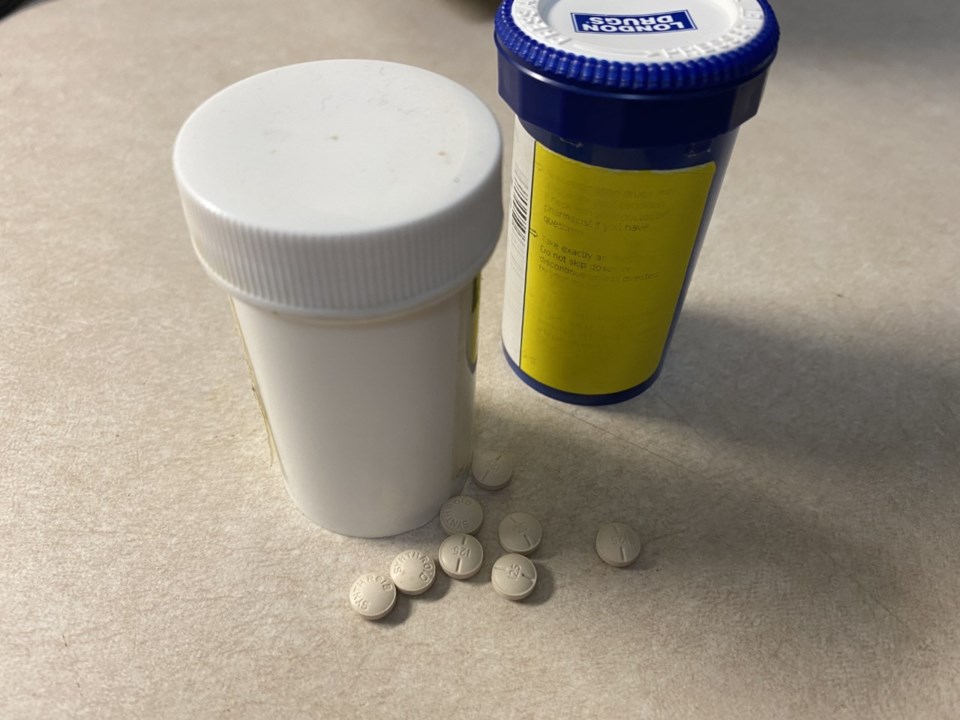New Westminster is joining the call for the creation of the Canada Pharmacare Act.
Federal New Democrats, including New Westminster-Burnaby MP Peter Julian, recently held a virtual e-rally on Bill C-213, the Canada Pharmacare Act, which is calling for universal, public drug coverage. They stated that dozens of Canadian cities, towns and organizations representing millions of Canadians have endorsed this bill.
On Monday, council unanimously supported Coun. Jaimie McEvoy’s motion to support Bill C-213. The motion stated that members of Parliament are seeking municipal support for the bill, which would create a universal, publicly administered pharmacare program based on the same principles as Canada’s universal health-care program.
“This weekend I was actually approached by a women at the Safeway who told me that … she spends $4,300 a month on her drugs for whatever condition that she deals with, which is more than she makes at her full-time, unionized job,” McEvoy said. “In fact, it’s a combination of an employer health plan and family support that allows her to pay for that medication.”
Because of the cost of prescriptions, McEvoy said a lot of people find themselves in a situation where they must decide whether they are going to go into financial duress in order to get prescriptions or whether they’re going to do without the prescriptions and deal with pain or put themselves at risk.
“I think in this pandemic, a lot of people have given more thought to health care and to what it means to be Canadian in terms of the issues that are being brought to the fore by the pandemic, including what kind of health-care system we want to have in the future,” he said. “We often pride ourselves as Canadians that we have a great universal health-care program. Well it’s true; we can all go to the doctor, but we can’t all necessarily get the prescription the doctor prescribes. That is what this effort is about.”
Mayor Jonathan Cote supports the creation of a national pharmacare program.
“We are all proud of our public health-care system here in Canada, but I think we need to recognize there are actually some gaps, some rather significant gaps,” he said. “This work is about helping to address some of those gaps.”
Support for plan
According to the federal NDP, one in every five Canadians wasn’t taking the medicine they needed before the coronavirus pandemic because they couldn’t afford to pay for it, and millions of Canadians have lost their jobs and workplace drug coverage because of COVID-19.
“Many Canadians are putting their health at risk because they don't have drug coverage and can't afford to pay out-of-pocket,” Julian said in an NDP press release. “No one should have to face the impossible choice between paying rent or taking the essential medication that their doctor has prescribed. Bill C-213 will guarantee that every Canadian can get the medication they need.”
The NDP states the Canada Pharmacare Act is reaching a crucial period in the legislative process because the second hour of debate and the first vote will be held in February 2021. The party is calling on the Liberal government to work with the NDP to deliver the universal pharmacare plan by spring 2021.
In 2018, the federal Liberal government created an independent advisory council to engage with Canadians and provide advice on how to implement national pharmacare.
In June 2019, the seven-member council released a 171-page report calling for the establishment of a universal, single-payer public pharmacare system. It recommended that coverage for a list of common and essential drugs be implemented by Jan. 1, 2022 and a comprehensive plan be in place by Jan. 2, 2027 (when the total cost would be $15 billion a year.)
“There is a cost to universal pharmacare, and we understand that governments have fiscal limits,” Dr. Eric Hoskins, chair of the advisory council, said in the report. “But universal, single-payer, public pharmacare can save billions by lowering the price we pay for prescription medicines and by avoiding the greater costs that accumulate when a manageable condition becomes a serious health crisis or when complications develop because someone could not afford to take medicine as prescribed. … Improving access to prescription medicine improves health outcomes, reduces health care visits, and saves billions in downstream health care costs.”
Follow Theresa McManus on Twitter @TheresaMcManus
Email tmcmanus@newwestrecord.ca


